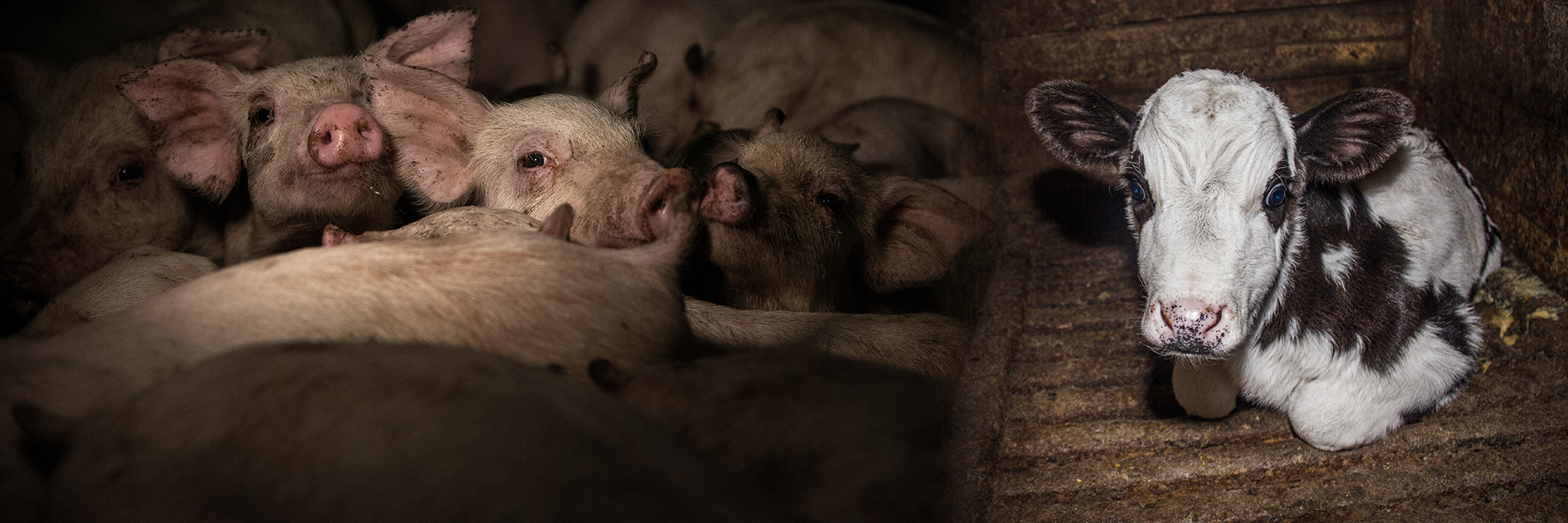Honorable Representative [TYPE NAME]
U.S. House of Representatives
Washington, DC 20515
Honorable Senators [TYPE NAMES]
United States Senate
Washington, D.C. 20510
Congress switchboard: 202-224-3121
Dear Legislators,
Please co-sponsor and support the Safeguard American Food Exports (SAFE) Act,
H.R. 1094/S. 541. The SAFE Act illegalizes sale, transport, and interstate
commerce of horses or horsemeat by any person aware of their use for human
consumption. It also bans cross-border export of live horses for slaughter. This law
would safeguard people from
horsemeat laced with drug residue, like toxic meat that slipped into the UK food
chain this year.
Repeated polls show some 80 percent of Americans oppose horse slaughter. Yet amid
talk of budget cuts, Congress renewed funding for equine slaughter inspectors last
year — reversing a six-year ban. Why are tax dollars wasted on USDA oversight
of horse kill plants that most U.S. voters oppose?
Americans don't eat horses. Products ship overseas to France, Belgium, Japan,
etc.
The EU is ramping up regulations in response to phenylbutazone found in horsemeat
imports. This will require even more costly USDA supervision. Bute, linked
to cancer and
bone marrow diseases, is banned from use in humans and horses killed for meat. Still,
the equine painkiller is found in an estimated 95-100 percent of U.S. horses. Eating
horses — especially discarded racehorses (among companion, carriage and
wild horses routinely auctioned for slaughter) “is about as healthful as
eating food contaminated with DDT,” asserts Dr. Nicholas Dodman, a clinical
sciences professor at Tufts University Cummings School of Veterinary Medicine and co-
author of the peer-reviewed study Association of Phenylbutazone Usage With Horses
Bought for Slaughter: A Public-Health Risk.
No matter how proponents frame it, commercial horse slaughter is cruel.
Investigations show horses beaten and crammed into undersize trailers for treks that
can last over 24 hours with no food, water or rest. When unloaded, horses are
injured, weak or already dead. Some believe U.S. based processing will stop live-
horse transport to Mexico and Canada for slaughter. But before 2007, when equine
facilities were open in the U.S., tens of thousands of horses still died on foreign
kill floors.
Slaughter, abroad or here, is excruciating for these excitable animals. Captive bolt
stun pistols, ordinarily used for short-neck animals, fail to render horses
insensible. They thrash in pain. Slaughter is prolonged, with multiple stuns, blows
and stabs. Some horses stay conscious while killed.
Since court rulings closed two foreign-owned plants in Texas and one in Illinois,
both states banned horsemeat sale and possession. These last U.S. plants had paid
zero export tax and minimal income tax. They also harmed the environment.
Horse slaughter on U.S. turf is no solution for surplus horses. Horse
“owners” set to abandon animals unless they can sell them to slaughter
should be prosecuted for animal cruelty, rather than permitted to profit from
killing. A GAO report that sought to link increased neglect/cruelty with
termination of horse slaughter in the U.S. found no real evidence to back such
claims.
If you already support the Safeguard American Food Exports (SAFE/ Act, H.R.
1094/S. 541, I thank you. If not, please co-sponsor this key legislation.
Thank you,
YOUR FULL NAME
ADDRESS, CITY, STATE
COUNTRY













